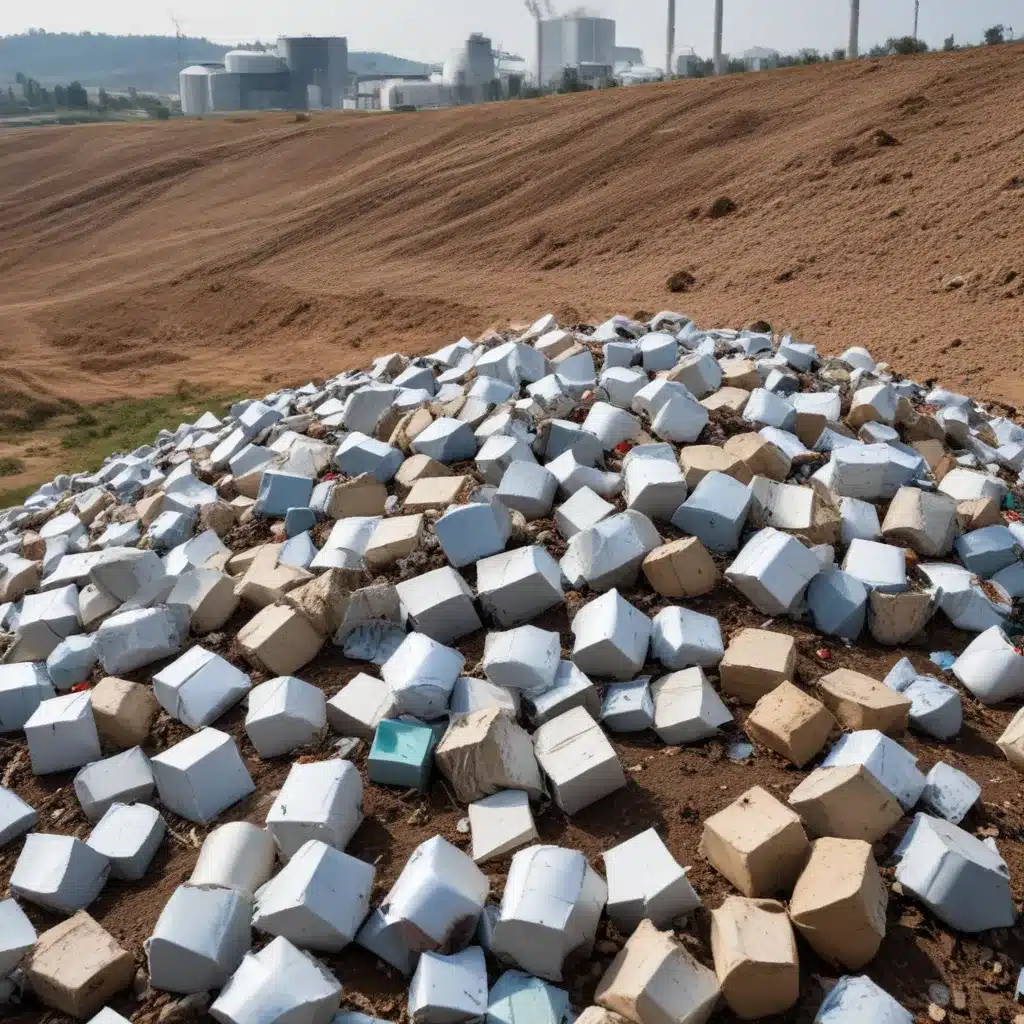
Renewable Energy and the Sustainable Waste Management Sector: Leveraging Waste-to-Energy
As Europe continues its ambitious push toward a clean energy future, the sustainable waste management sector is emerging as a powerful ally in the fight against climate change. By harnessing the waste-to-energy (WtE) conversion technologies, the continent is unlocking a treasure trove of renewable energy potential while simultaneously addressing the challenges of responsible waste disposal.
Waste-to-Energy Conversion Technologies
At the heart of this synergy lies a suite of advanced WtE technologies that are transforming the way we manage our waste streams. Anaerobic digestion, for instance, harnesses the natural processes of microorganisms to break down organic matter and produce biogas, a renewable fuel that can be used for power generation or upgraded to biomethane for injection into the natural gas grid. This approach not only diverts organic waste from landfills but also provides a reliable source of clean energy, contributing to Europe’s decarbonization efforts.
Another prominent WtE technology is thermal treatment, which encompasses processes like incineration, pyrolysis, and gasification. These methods leverage the calorific value of waste to generate heat, syngas, or bio-oil, all of which can be converted into electricity, district heating, or transportation fuels. Thermal treatments are particularly effective at handling non-recyclable waste streams, ensuring that valuable resources are not lost to landfills.
The WtE landscape is further bolstered by plasma gasification, an innovative technology that uses an electric arc to break down waste into its basic molecular components. This process produces a synthesis gas (or syngas) that can be used as a fuel for power generation or as a feedstock for the production of chemicals and fuels. Plasma gasification is renowned for its ability to handle a wide variety of waste types, including hazardous and medical waste, making it a versatile solution for comprehensive waste management.
Environmental Impacts of Waste-to-Energy
The environmental benefits of WtE technologies are substantial and far-reaching. By diverting waste from landfills, these systems help to reduce greenhouse gas emissions associated with the decomposition of organic matter, which is a significant contributor to global warming. The displacement of fossil fuels through the use of renewable energy sources generated from waste further enhances the climate-positive impact of WtE.
Moreover, the integration of WtE into the waste management sector helps to minimize the need for landfilling, a practice that can lead to groundwater contamination, air pollution, and the release of methane, a potent greenhouse gas. By leveraging waste as a valuable resource rather than simply disposing of it, WtE technologies are playing a crucial role in transitioning toward a more circular economy, where waste is minimized, and resources are continuously reused and repurposed.
Economic and Social Benefits
The adoption of WtE technologies within the sustainable waste management sector brings with it a host of economic and social benefits for European communities. The development and operation of these systems create green jobs in areas such as engineering, construction, and facility management, contributing to the growth of the green economy.
Moreover, the cost-effective nature of WtE solutions can help to alleviate the financial burden associated with traditional waste management practices, such as landfilling and incineration. By generating renewable energy and valuable byproducts from waste, WtE facilities can provide a revenue stream for municipalities and waste management companies, resulting in more cost-effective waste management solutions for citizens and businesses.
The integration of WtE into the waste management sector also fosters greater community engagement and environmental awareness. As citizens witness the transformation of their waste into a valuable resource, they are more likely to embrace sustainable waste management practices, such as proper sorting and recycling. This, in turn, further enhances the effectiveness of WtE systems and the overall circular economy in the region.
Policy and Regulatory Frameworks
To fully harness the potential of WtE technologies, policymakers and regulators in Europe have been instrumental in creating supportive frameworks that incentivize the development and adoption of these innovative solutions.
Renewable energy incentives, such as feed-in tariffs, tax credits, and renewable energy certificates, have played a crucial role in making WtE projects financially viable and attractive to investors. These policy mechanisms help to bridge the gap between the cost of WtE and the market price of electricity, ensuring a stable and predictable revenue stream for project developers.
Alongside these incentives, waste diversion mandates and emissions standards have also been implemented to drive the transition toward sustainable waste management practices. By setting ambitious targets for the diversion of waste from landfills and the reduction of greenhouse gas emissions, policymakers have created a regulatory environment that encourages the deployment of WtE technologies as a means of achieving these objectives.
The continued collaboration between the public and private sectors is essential for the successful integration of WtE into the European waste management landscape. Public-private partnerships have emerged as a powerful model, allowing governments and businesses to leverage their respective strengths and resources to develop and implement innovative WtE projects that benefit both the environment and the local economy.
As Europe forges ahead in its pursuit of a sustainable and resilient energy future, the sustainable waste management sector and its WtE technologies are poised to play a pivotal role. By unlocking the inherent energy potential of waste, these innovative solutions are not only helping to address the challenges of waste disposal but also contributing to the continent’s broader decarbonization goals. The future of renewable energy in Europe is inextricably linked to the success of the waste-to-energy revolution.
To learn more about the latest developments in renewable energy and sustainable waste management, visit the European Future Energy Forum.







